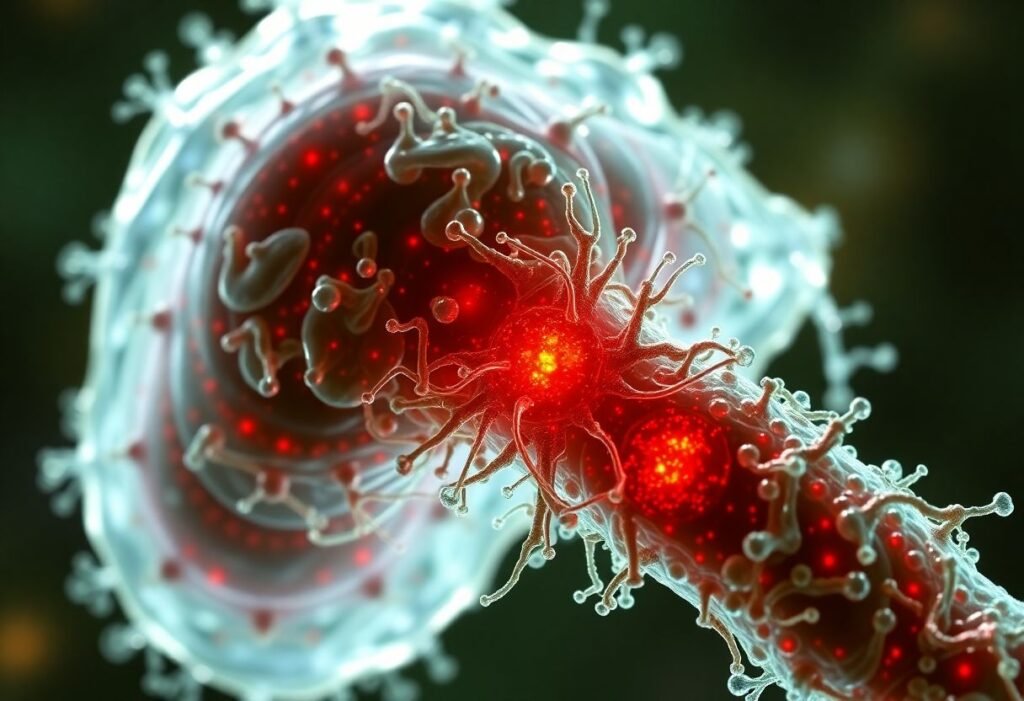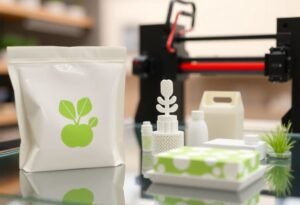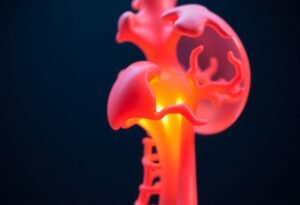The recent breakthrough in creating hybrid plant-animal cells represents a significant advancement in biotechnology. By enabling animal cells to harness solar energy like plants, this innovation opens new avenues for sustainable medical and food solutions. The implications for organ transplants and lab-grown meat production are profound, positioning this research at the forefront of future biomedicine and agriculture.
Revolutionizing Organ Production with Hybrid Cells
Researchers from Japan have successfully engineered hybrid cells that blend the properties of plant and animal cells. This innovative approach allows these animal cells to absorb sunlight and perform photosynthesis, thus generating energy. This capability could drastically impact the production of organs and tissues for transplantation, reducing dependency on traditional methods that rely on donor availability. The result is a potential pathway to grow organs that are more compatible with human biology, minimizing rejection rates and increasing the success of transplants.
Lab-Grown Meat: A Sustainable Future
The application of these hybrid cells extends to the burgeoning field of lab-grown meat. By utilizing plant-animal hybrids, scientists can create muscle tissues that not only mimic but can potentially outperform conventionally raised meat products in terms of sustainability. These engineered tissues can grow using sunlight, offering a more eco-friendly solution to the environmental concerns associated with meat production, such as greenhouse gas emissions and land usage. This is a critical step towards a more sustainable food source in an era of increasing global food demand.
The Mechanism Behind Hybrid Cell Creation
The innovative process of creating plant-animal hybrid cells involves introducing chloroplasts—the organelles that enable photosynthesis in plants—into animal cells. Scientists achieve this through sophisticated genetic engineering techniques, modifying the existing cellular structures to accommodate photosynthetic functions. This fusion enables the cells to capture sunlight, thereby transforming light energy into chemical energy, with potential applications that could reshape biological research and food industries.
Ethical Considerations in Hybrid Cell Research
As with any significant scientific advancement, the development of hybrid plant-animal cells raises ethical questions. Concerns revolve around the implications of manipulating life forms for human benefit, particularly regarding genetic engineering and potential impacts on ecosystems. Researchers must navigate these ethical waters carefully, ensuring that innovations are pursued responsibly and with consideration for long-term consequences for both human health and the environment.
Potential Challenges and Future Directions
Despite the promising potential of hybrid cells, several challenges remain. Researchers must address the efficiency of the photosynthetic process within animal cells and optimize it for practical applications. Moreover, regulatory frameworks surrounding genetic engineering and lab-grown products need to evolve to facilitate large-scale adoption of these technologies. Continued research and collaboration with regulatory bodies will be essential in harnessing the full potential of hybrid plant-animal cells.
Looking Ahead: The Future of Biotechnology
The creation of solar-powered tissues and organs using hybrid cells marks a transformative leap in biotechnology. As researchers delve deeper into this frontier, the potential applications could extend beyond organ and meat production, perhaps paving the way for advancements in energy-efficient systems, waste reduction, and sustainable agriculture. The future of this research promises not only to innovate but also to address pressing global challenges, ultimately leading to a healthier, more sustainable world.





















